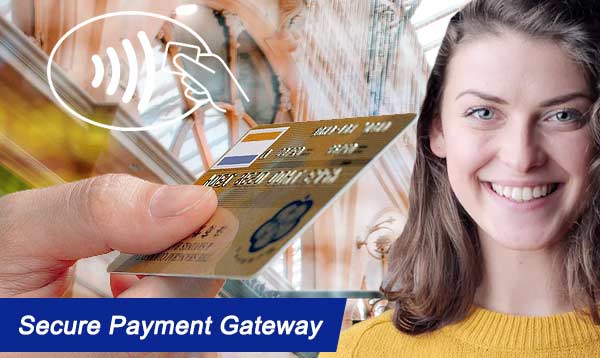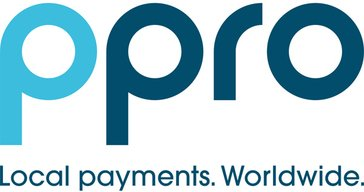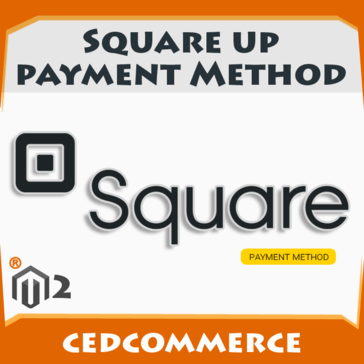Secure Payment Gateway
Secure Payment Gateway Table of Contents
- Secure Payment Gateway
- What Is A Payment Gateway?
- Difference Between Payment Gateways And Payment Processors
- Types Of Payment Gateway
- Examples Of Top Payment gateways
- Limitations To Payment Gateway
- Why You Should Consider Stacking Payment Gateways
- Considerations For Choosing A Secure Payment Gateway
- Opening Your Payment Gateway For Business
- Overview of Secure Payment Gateway
- Best Payment gateway Solution by Rating
- Best Payment gateway Solution by Price
- Best Payment gateway Solution by Rated Features
- Check Your Payment gateway Solution Offers Round The Clock Support
- Make Sure Your Payment gateway Solution Offers The Features You Need
- Best Payment gateway Software Solution Verdict
- Payment gateway Software Frequently Asked Questions
- What is the best Payment gateway Solution?
- What is the cheapest Payment gateway Solution?
- Is there a free Payment gateway Solution?
- View all of the top Payment gateway Software Solutions
- Payment gateway Alternatives
- Payment gateway VS Side by Side Comparisons

Secure Payment Gateway
What Is A Payment Gateway?
Payment gateways are a type of technology that allows merchants to process credit cards without the need for separate processing companies. This can allow you to process more transactions and have a larger customer base. Without the need for a payment gateway, many merchant account providers will not allow you to process credit cards, as they do not believe in you having direct access to your customers.
Difference Between Payment Gateways And Payment Processors
In the discussion of two prominent terms in eCommerce, one that is often overlooked is the term 'payment gateways'. While many online retailers and eCommerce entrepreneurs often refer to 'gateway' as a synonymous term with 'processor', it is a more accurate term. Gateways are part of the payment processing network infrastructure. The way in which the payment gateway stores and retrieves data to process credit card transactions is important to understand when you are comparing Payment Gateways vs Payment Processors.
Payment gateways have both positive and negative characteristics. Gateways are an important part of the PSN and therefore are subject to a variety of security and reliability issues. This is not the case for payment gateways, which are off the rails and therefore susceptible to outage and hacking attacks. In some cases, payments bypass the gateways and go directly to the merchant account, bypassing the payment gateways entirely.
While payment gateways are used by many payment processors including PayPal, they are not the only ones that can support credit card transactions. Some processing networks like PayPal allow customers to use their online merchant accounts to accept payment through other platforms such as Google Checkout and Xoom.
Types Of Payment Gateway
One of the main categories of gateways that you will come across when you are looking around is 'wireline gateways'. These payment gateways are the most common types of payment gateways available, and they are typically used for online shopping and online invoicing. These payment gateways are able to process all major credit cards without a lot of processing time involved, which makes them very useful for making online payments. Many web marketers also make use of this type of payment gateway in order to process payments from their customers, and this is a way in which they are able to capture all of the valuable information about their customers, which they can then turn around and offer to the right buyers.
Another type of payment gateway that you will come across is 'virtual payment gateways', which allow all online merchants to process credit cards and debit cards with ease. This is usually done by the business owner themselves, and it is very convenient for both the buyer and the seller. Virtual payment gateways are becoming increasingly popular, mainly due to the fact that they offer great features at an affordable price - and they allow business owners the ability to process all of their customers' credit and debit card payments. Businesses that are willing to invest in these types of gateways are likely to find that these types of services are extremely useful for their business needs.
Examples Of Top Payment gateways
- Paypal
- Stripe
- Square
- AmazonPay
Limitations To Payment Gateway
One of the most common limitations of payment gateways is that the fees charged are usually per transaction. This means that if you have ten transactions and pay for them in full, the payment gateways will charge you $10 per transaction. It is important to note that these charges may change over time as each gateway experiences higher or lower transaction volume.
Another limitation of payment gateways is that they charge their clients on a per card basis. While it is possible to set up a recurring transaction, this is not an option for customers who regularly purchase products or services on credit.
Other limitations of payment gates are related to the time periods for which they accept payments. Most payment gateways only allow transactions to take place on the day you set up your account. They do not process payments for 24 hours after the transaction has been made. This means that customers need to be sure to set up an account with the payment gateway in the first place so that they can begin processing payments for a business as soon as possible.
Why You Should Consider Stacking Payment Gateways
Why You Should Consider Stacking Payment Gateways? When setting up a merchant account, the transaction of money from one buyer to another is usually done through a gateway. This is an online payment processing company that provides service for credit cards, debit cards, e-checks and other payment gateways. The payment gateway accepts the payment from your buyer and passes it on to the company you are working with for the conversion of that money into the currency that you want to accept, typically the currency equivalent of the local currency that your customer chooses to pay in.
Payment gateways provide a level of security and protection for both parties that usually cannot be duplicated in a local transaction between a buyer and seller. The most common use for payment gateways is the process of currency conversion. If you accept credit card transactions or e-check transactions from your buyers, you will have to have a way to process the transaction and hold the money until the amount has been successfully converted to the local currency that your customers choose to pay in.
Hosted payment gateways allow your business to process credit cards, debit cards, e-checks and other types of payments without having to install and maintain any additional hardware. You can easily test out the software integration between the merchant account provider and your e-commerce site, which allow you to test various transactions with different sets of customers.
Considerations For Choosing A Secure Payment Gateway
First, the method of payment must be determined. The two most popular methods are over the block-credit cards and charge cards. Both offer the advantages of providing merchants with a fast and easy method for accepting payments from their customers. However, there are differences between the methods as well as benefits that may be provided to the customers.
Charge Cards vs. Over the Block: Charge cards often provide the quickest option for customers when they are shopping online. The charges are generally much lower than the over the block processing fees. This makes it attractive to many consumers, especially those who make purchases very infrequently. Additionally, because the transactions are not carried through a bank line of credit, there is typically no need for a merchant to maintain any balance and there is also no need to consider any type of financial security deposit.
PayPal vs. ABA: PayPal has received much criticism in recent years for its processing fees. However, many small businesses and individuals have turned to PayPal because it does not require any type of financial security deposit and the transactions cannot be tracked. Many consumers also prefer PayPal because it offers the most options for shopping, making it perfect for e-commerce sites. Many of these consumers will make purchases using their credit cards rather than using a PayPal account and therefore the company continues to experience strong customer support even though it may be perceived as a disadvantage by some.
Opening Your Payment Gateway For Business
There are two types of payment gateways available to you: the free option and the paid option. Free payment gateways work exactly the same way as those that your bank uses to process your checks and money orders. You have to request a 'safe' credit card to process credit or debit card payments, and you must keep track of all transactions to ensure that the right amounts of money are being transferred to your account. The money you charge to your account goes directly to PayPal, who will then issue you a check which you then cash out to your customer.
Paid payment gateways are much more secure because you are not giving out your customer's money to the processing fees. When using a paid gateway, you instead have a processing company to hold or collect the money for you. They will then pass along the charges to you in the form of higher transaction fees. This is because the processing fees that these companies charge are based on the cost of doing business, which is much higher for smaller transactions.
Scroll down to read our indepth Payment Platforms guide. What you should know, Payment Platforms features, price plans and support. Pros and Cons of Payment Platforms as a payment gateway, everything is explained below.
Overview of Secure Payment Gateway
Spreedly is a software company that specialises in payment-gateway software for small to enterprise level businesses.
Spreedly is listed as the best payment-gateway software related to Payment Platforms. Spreedly was founded in 2008 in Durham, NC and currently has over 79 employees registered on Linkedin.
Best PAYMENT GATEWAY Solution By Rating
Get our stories delivered
From us to your inbox weekly.
 Spreedly
Spreedly
 Simpl
Simpl
 allpago
allpago
 EBizCharge
EBizCharge
 Bolt
Bolt
 PayLane
PayLane
 Paytm Business
Paytm Business
 Apple Pay
Apple Pay
 Paystack
Paystack
 SquareUp Payment Method
SquareUp Payment Method
 Ingenico ePayments
Ingenico ePayments
 PayMart
PayMart
 Paymill
Paymill
 Yapstone
Yapstone
 TRUSTLY
TRUSTLY
 Wirize
Wirize
 Zotapay
Zotapay
 Zooz
Zooz
 Zipmark
Zipmark
 XTRM
XTRM
